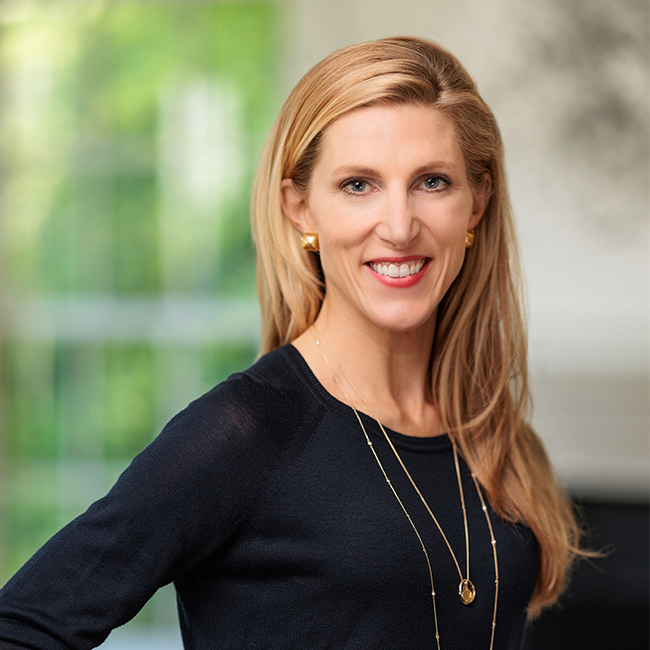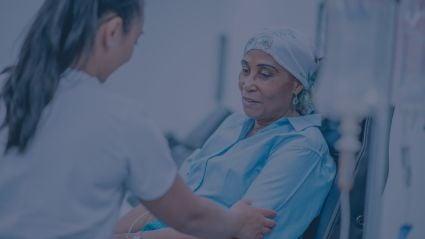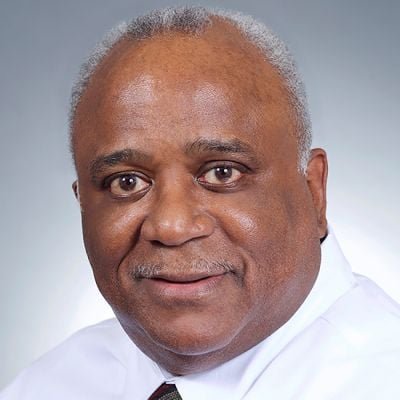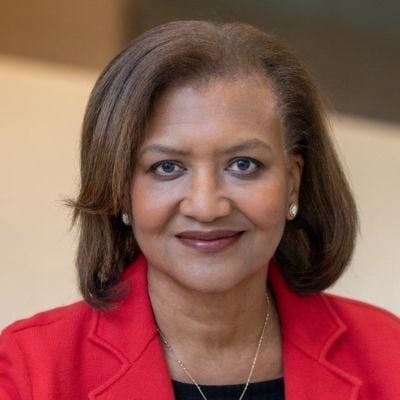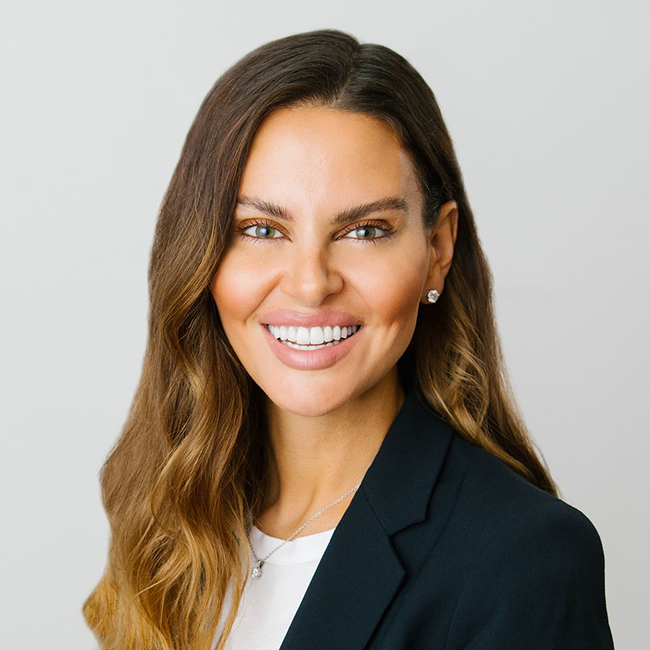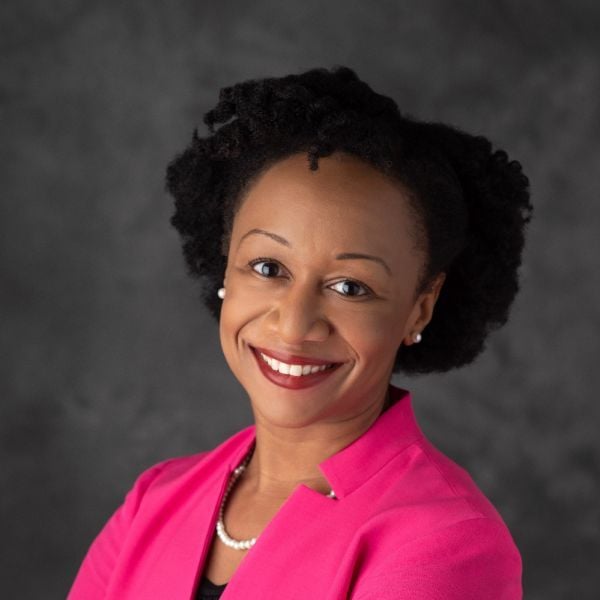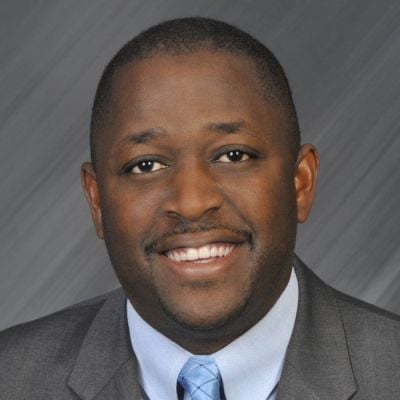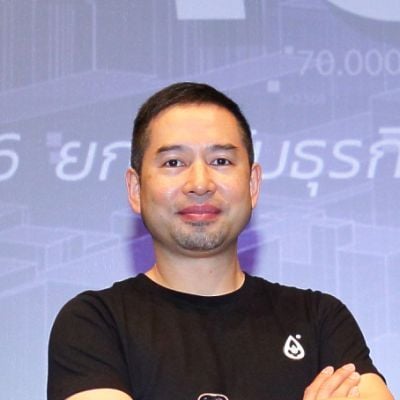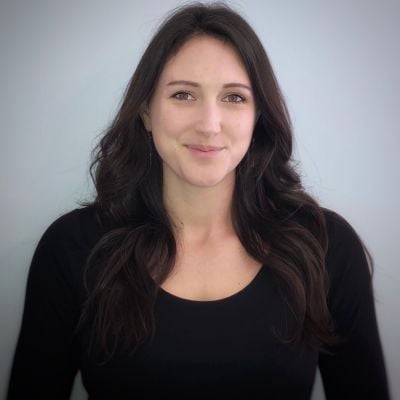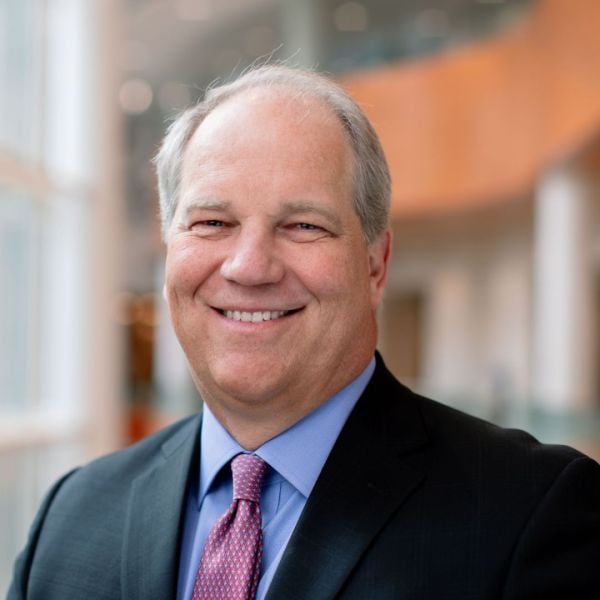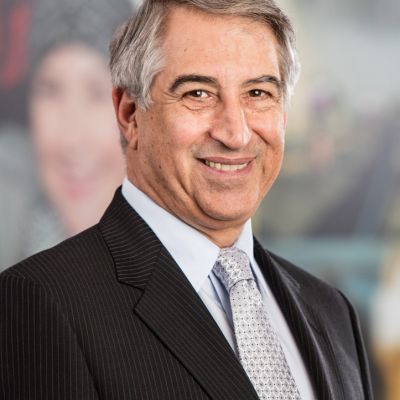
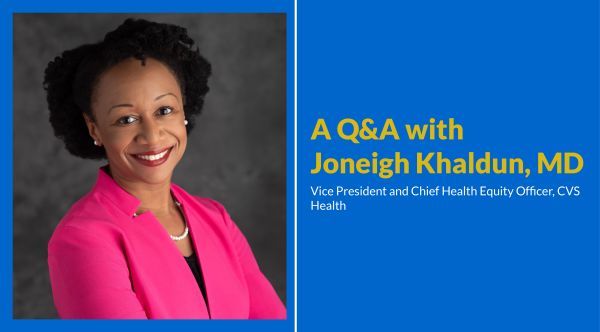
1. Tell us about your background and career path. What brought you to CVS Health, what are some of your main responsibilities, and what do you find most rewarding about the role?
I am a practicing emergency medicine physician in a busy Level 1 trauma center, and for most of the past decade, have been in leadership roles in governmental health care and public health, most recently as a chief medical executive in Michigan. I have always been motivated to improve the health of those who typically have been marginalized, and this role is really exciting because we serve millions of people every day and can have a significant impact on how people experience health and health care.
As CVS Health’s inaugural chief health equity officer, I work across the entire company to make sure we are understanding where inequities and disparities exist and that we are advancing strategies to address them. This includes empowering our more than 300,000 colleagues, assessing and updating our programs and protocols, and assuring we are addressing social drivers of health in a robust way.
2. How has your background as a medical doctor informed your current role as chief health equity officer?
In my practice, I see what happens when the system doesn’t work, and it motivates me in my other roles. I’ve seen patients who can’t afford their medications and come in with a heart attack or stroke. I see patients who are unable to access outpatient behavioral health services, so they sit in the emergency department for days waiting for a hospital bed.
I love emergency medicine and being able to comfort people and solve health-care issues in the acute setting. But I also see firsthand how people are struggling and how the health-care system doesn’t work when it comes to cost, access, and unequal access to quality care. It motivates me to do more, and that is why I am excited about the steps we are taking at CVS Health to advance affordable, accessible, quality care in a manner that does not leave people behind.
3. CVS Health recently announced the formation of a Community Equity Alliance that will focus on expanding the community health worker workforce and address disparities in heart health and mental health. What are your overarching goals for this program?
I'm really excited about the new Community Equity Alliance. We’ve established the alliance to expand the community health worker workforce, enhance connections between health-care institutions and communities, and address disparities in heart health and mental health outcomes. Through the alliance, we partner with organizations who are important providers of services in underserved communities with the goals to strengthen relationships, and share best practices and lessons learned to advance a culture of health equity.
The first partners of the alliance are Meharry Medical College in Nashville, Sinai Chicago, and Wayne State University in Detroit. Each collaboration includes a locally tailored initiative based on specific needs and goals.
Through the power of collaboration, expansion of evidence-based interventions, and a shared commitment to integrating the voices and lived experiences of community members, we will create innovative solutions to help make health care more accessible and decrease health disparities.
4. What made CVS Health most interested in participating in the Milken Institute’s Financial Innovations Lab on financing opportunities to scale Food Is Medicine prescriptions?
The health-care sector can and should play a role in helping people access healthy foods that can improve their health and overall well-being. However, financing challenges have been a barrier to health-care organizations looking to adopt initiatives that address food and nutrition insecurity and incorporating food as medicine into health-care delivery. We joined the Milken Institute’s Financial Innovations Lab to be part of the solution, helping to identify opportunities for collaboration with key stakeholders across the food and health-care sectors where new policies, processes, or programs can assist in helping to finance and scale Food Is Medicine programs across the country.
5. Food prescriptions (FoodX) are one way of addressing the disparities in health equity. Tell us about CVS Health’s health-equity strategy, particularly as it relates to food.
Food insecurity is one of the greatest health challenges in this country. Today, 33.8 million people live in food-insecure households. That’s why addressing food insecurities is a critical part of our health-equity strategy.
We are looking for opportunities to integrate Food Is Medicine programs into our products, including medically tailored meals, medically tailored groceries, and produce prescriptions.
Within our Medicaid business, we’re building a social care workforce that can effectively assess individuals for food and nutrition security, connect them through closed loop referrals to community-based services within their communities, and help them enroll in federal assistance benefits if they’re eligible.
Our more than 6,900 CVS Pharmacy locations accept SNAP EBT cards, which is an important tool in advancing access to food. We also partner with local food banks to address food insecurities to help provide services such as mobile food pantries, monthly cooking classes and medically tailored meals.
6. How has the pandemic impacted CVS Health’s health-equity strategy, and how are you advancing programs in the hardest hit communities?
The COVID-19 pandemic highlighted the significance of health inequities, as Black and Latinx communities and other historically marginalized groups were disproportionately impacted by the disease. These disparities are not genetic but based on disparate access to jobs, health care, affordable housing, and historical and current injustices in the health-care system.
During the pandemic, we worked across our businesses—and with our network of community-based leaders and nonprofit organizations—to focus on addressing inequities related to COVID-19 vaccine access and education in underserved communities. We’ve taken key learnings from the pandemic to inform how we advance our health equity strategy, which includes addressing social determinants of health.
Through community-based services offered at our MinuteClinic locations, Project Health, which brings free biometric screenings into communities to identify chronic illnesses, and Health Zones, which address health inequities through community-centered investments, we are helping to reduce barriers to care in historically marginalized communities.

